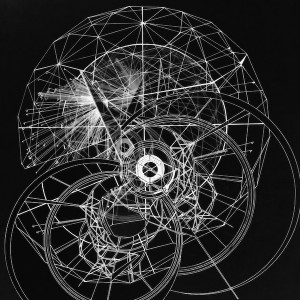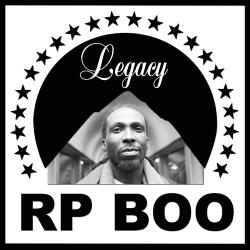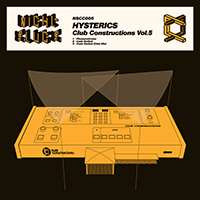Lafayette Anticipation associate curator Anna Colin talks to artist Tyler Coburn about Ergonomic Futures, a speculative project engaged with art, design, science, anthropology and writing. In this interview, Coburn discusses the research, production process and network of collaborators of a multilayered project ultimately concerned with the futures of humankind. Anna Colin: When one comes across your museum seats Ergonomic Futures (2016—) in contemporary art exhibitions—and soon in natural history, fine art, and anthropology museums—they look… [read more »]
Tough Luck | Tyler Reinhard
When life is being super unfair, just do what we all do: suffer the consequences.

Facebook Live Video gets Reaction support as assault on ISIS-controlled Mosul begins.
I wake up and the first thing I do is check my phone. A convenient euphemism for using Facebook’s machine learning techniques to discover which 300 entries are statistically most likely to stand out from the tens of thousands of brain dumps my friends and family have produced over the last 48 hours. Impressed by what Facebook provides, I think to myself, “This can’t end well” for the thousandth morning in a row. Whether this sentiment concerns losing myself in a trance of scrolling and tapping, or the long term civic implications of the algorithm itself is unclear. I watch a 15 second video about the #StandingRock encampment. Then, an ad for Soylent’s meal replacement coffee. I’ve been awake for maybe fifteen minutes, and already weighing the pros and cons of surveillance and demographic profiling.
“… according to the National Retail Federation, Americans will spend $8.4 billion on Halloween this year…” the podcast I was listening to last night resumes mid sentence. By the time I’m in the shower I learn that candidate’s halloween mask sales have predicted every election since Carter. Donald Trump has refused to agree to the terms of the election — maybe it’s rigged, he implies. I remember reading somewhere that most voting machines are more than a decade old and I can only assume that if elections haven’t been hacked already it’s because none of the Dangerous Basement Nerds cared enough to do it. I might be called a dangerous nerd. I’m nearly thirty years old and I’ve never voted in an election — why would I hack one? I’m brushing my hair and looking through the steam on the bathroom mirror as the podcast ends it’s segment: Donald Trump’s halloween mask is outselling Hillary Clinton’s by a factor of ten.

Iraqi children younger than the war tossing rocks into a pool of crude oil.
When I tell my friends I’m working on a piece about coping with rigged systems, they note their preference for the most egregious one. Municipal bail fees. Credit card applications. Diversity in the tech sector. The Diagnostic and Statistical Manual of Mental Disorders. Prison labor. The Flint Water Crisis. Privatized retirement funds. Homelessness programs. Online harassment. The American Legislative Exchange Council. “Um, gender?!”
“Are you going to talk about that new Adam Curtis thing?” another suggests. How could I not? They were referring to a new BBC series, a sprawling epic from the voice of the cult documentary Century Of The Self. If you don’t know him, Adam Curtis uses his voice, found footage, and a signature rhetorical clause to produce a kind of intellectual porn for people like me. And just like his previous works, HyperNormalisation is a pornography of interviews, white papers, and ivy league history lectures that have been woven into what can only be called an incredibly reasonable conspiracy theory. His central premise? The fictions which describe the way society functions are the work of politicians whose only job is to conceal how little power they really have, and how unstable capitalism has really become.
HyperNormalisation isn’t alone. This year has seen the Systemic Critique emerge as a mainstream genre unto itself. Netflix, a company which has already established a sizable “the deck is stacked” footprint with Orange is the New Black and House of Cards, released 13th, a documentary about the wording of the constitutional amendment which banned chattel slavery and how it has effectively produced an industry of prison-powered modern slavery. Do Not Resist, a film about the militarization of American police, won the Tribeca Film Festival’s best documentary feature prize. There’s Mr. Robot, a manic episode about the plot to overthrow the network of technocrats who run the global economy. Oh, and Braindead, the primetime summer hit about an extraterrestrial brain parasite that infiltrates Washington DC.
As the list of representations of riggedness goes on and as the line between documentary and fiction becomes increasingly less relevant, the theme music has become a protest chant. A soundtrack to the anti-police brutality march livestream gone viral. The Whole Damn System is Guilty As Hell.
Living in this world of open and popular hostility to the social order feels normal for me. Like many of my friends, I was a young anti-authoritarian. I despised capitalism, and politics, and though I would struggle to understand why exactly, democracy itself. At the time, these beliefs were difficult and disorienting to arrive at, but like many adolescent discomforts, one eventually grows to call them home.

Public radio marketing campaign, embracing the new consensus on NYC’s L train.
But, it’s a new game for many Americans. When Edward Snowden brought the world up to speed on the scope of state surveillance, it was an outrage. During the first months of bystander footage of weekly police killings going viral, it was paralyzing. When the Panama Papers were released last spring — documents that provide evidence politicians, drug cartels, and the super wealthy were cooperating to evade tax laws and conceal fraud and corruption — Americans were barely surprised. When Bernie Sanders said “the real truth is that Wall Street regulates Congress,” it was too little too late. When emails leaked out of the DNC proving his own party systematically betrayed him? “Meh, figures.” The public political psyche has transformed really suddenly. In the time that has passed since season three of Game of Thrones, liberal America has gone from wiping First Black President Tears to extinguishing cigarettes in their own coffee.
And like it or not, when Trump says he’s going to “#DrainTheSwamp” to kill all the mosquitos of a corrupt government at once, working class Americans on the right hear what the rest of us said goodbye to long ago: hope. Just don’t tell them the turn of phrase was popularized by Mary “Mother Jones” Harry, founding member of the Industrial Workers of the World.
I open Reddit. Long considered the bastion of suspiciously protective ‘free speech’ for the alt-right, it feels like an unlikely retreat. I’m generally talkative on social media. Here, I’m silent. Tip-toeing around, careful not to get too close to the earnest Reddit bro I could easily accidentally become. I visit r/Cyberpunk, and find the top post of the day is about Park Geun-hye, the South Korean president currently at the center of a devastating corruption scandal. In the comment thread below, presumably with some degree of irony, the community celebrates the breadth of dystopia in neon low-life affect: “the aesthetic is developing,” one user suggests, “and so is the setting.” Elsewhere in the thread, someone drops a link to an article about McGraw-Hill, one of the most powerful financial companies in the world, which also happens to publish most of the world’s K-12 textbooks. Unrelated. Dystopian. There’s nothing exceptional about this comment thread, there are billions just like it across the internet — links to conspiracy theories, Joe Schmoe’s vulgar impressions of politicians in the spotlight, arraignments of one sort of another that go all the way to the top. Are our strange online cultural niches becoming sanctuaries from our own powerlessness?

A Reddit community grapples with the geopolitical reality of their niché fantasy in the comments.
Social technologies like Reddit, Facebook, Twitter, and Snapchat are another kind of coming-to-terms with riggedness. These products are, at least upon analysis, an admission that our public and private lives are subject to an invisible architecture that often functions beyond our control. They imply at least some form or shape to how our realities are produced. Unlike the unwritten rules of kleptocracy, digital platforms in theory can be edited to produce different results. Just what exactly are we automating? All of these rigged systems? The presumption here is that once this digital transition has concluded, our political structures will be fairer, more open, more responsive to corrective actions.
But in order to succeed as a technology company, social products need to grow quickly. Too quickly. Take Twitter: they have nearly the same number of users globally as the United States of America — the third largest country on the planet — has citizens. And despite Twitter’s indispensable place at the center of every conversation on the unprecedented leaks and scandals about political and economic corruption discussed above, it’s unclear if the platform is even valuable enough to be sold at auction. Mention this dilemma on the service and you’ll hear a similar refrain from any niche that has found its place there. “Collectivize Twitter!” “Make it a public utility!” “It should be a foundation!” Surprisingly optimistic, given the conversations about the corruption of collectives, utilities, and foundations found on the average Twitter timeline.
As more about how our world is constructed and intertwined in indefensible ways becomes a matter of public conversation and consensus, technology will chart its own accelerated path to the future. Leaping over the regulating agencies no one trusts anyway. Conducting social experiments on us without our consent because we will get over it. Writing data harvesting tools for the NSA because users assumed it was already in place, and the PR damage had been done. One by one the responsibilities traditionally managed by the government will shift to technology companies. As users, we’re going to have to come to terms with the probability that there’s nowhere to turn. The corruption of the old world has rigged everything, including its replacement. We won’t like it — just like we won’t like the results of the next election, whatever they may be. But we’ll keep on living. Making due with the injustice until the concept of justice itself is remembered as the myth it may well have been from the start. Every evening on r/Cyberpunk, someone closes their copy of Neuromancer in a world more closely resembling their fantasy. And in that future, whether we’re swiping through our timelines in the morning, letting machine learning algorithms feed us, heal us, kill us, jail us, breed us, or just make our dreams come true, we’ll remain just a little relieved that the chaos and violence isn’t worse than we privately imagine it could be.
Tyler Reinhard is a writer, product designer for Signal, and publisher of Mask Magazine.










































































